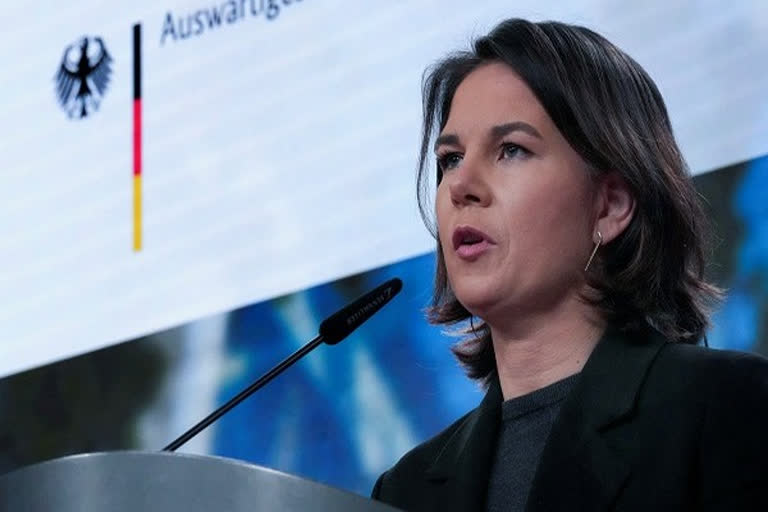New Delhi:New Delhi: There is no doubt that India will have a decisive influence on shaping the international order in the 21st century – in the Indo-Pacific and beyond, said German Foreign Annalena Baerbock during her departure from India.
"Visiting India is like visiting a sixth of the world. As early as next year, India will overtake China as the most populous country in the world. There is no doubt that India will have a decisive influence on shaping the international order in the 21st century – in the Indo-Pacific and beyond," the German Foreign Minister said.
She said that India has managed to lift more than 400 million people – almost as many as people in the EU – out of absolute poverty in the last 15 years, which is impressive. It shows that social plurality, freedom, and democracy are a motor for economic development, peace, and stability. Working on this together with strengthening human rights is also our task.
In the final month of Germany's G7 presidency, Baerbock is visiting India just days after it took over the G20 presidency. She said that at the G20 summit in Bali, India showed that it is ready to play its role globally while adding that the clearer positioning of the G20 against the Russian war of aggression in Ukraine is ultimately also due to India.
" As an emerging economic power and a solid democracy, India is both a role model and a bridge for many countries in the world, despite all the internal social challenges. And a natural partner of Germany," Baerbock reiterated.
Baerbock pointed out that the Indian government has set itself ambitious goals not only in the G20 but also at home for its people. When it comes to expanding renewable energies, India wants to push ahead with the energy transition more than before,she added.
"Germany stands by India's side. Because the dramatic effects of the climate crisis affect us all, destroying livelihoods in Europe as well as in India. That we want to strengthen our economic, climate, and security policy cooperation with India beyond our strategic partnership, is no empty words. I will also sign a mobility agreement in New Delhi that will make it easier for our people to study, do research, and work in each other’s country", she said.
Meanwhile, Lisa Badum,Germany's head of the Subcommittee on International Climate and Energy Policy said "India and Germany are robust and powerful countries. But our fight against the climate crisis will not be successful if every country fights on its own. We need strong partnerships."
Also Read:EAM Jaishankar holds talks with German foreign minister Baerbock
Badum also said that since the establishment of diplomatic relations more than 70 years ago, both countries have formed ties on multiple levels. "We especially want to highlight the bilateral partnership for green and sustainable development and use the momentum of Cop27 to stress the importance of international climate cooperation and to mobilize all efforts to reach the 1,5-degree-goal", Badum added.
